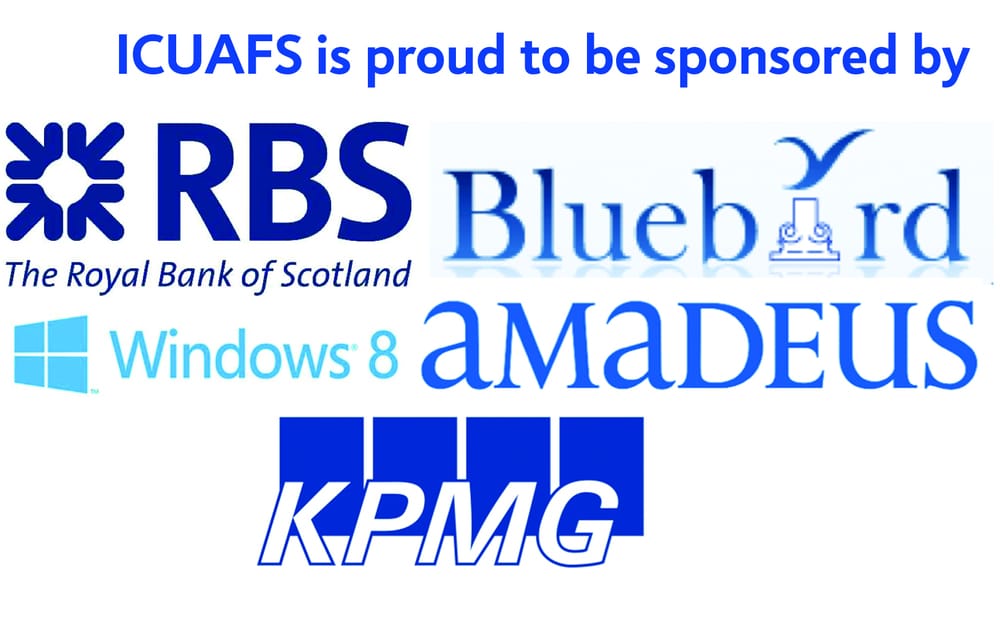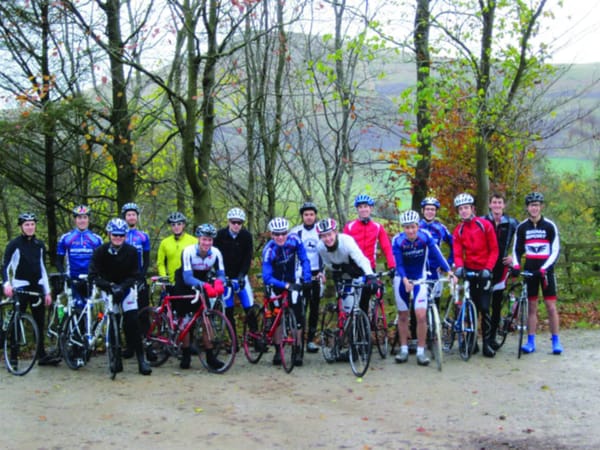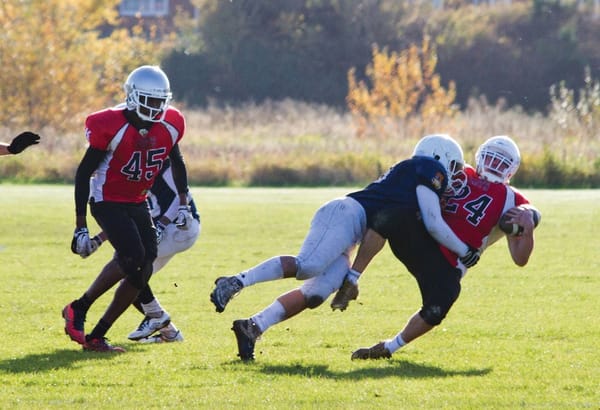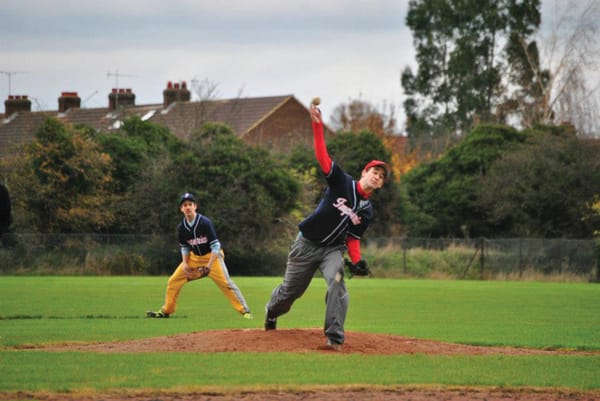Football Conquer The Counties
Omar Amjad and Henry Garner tell you of the ancient victory
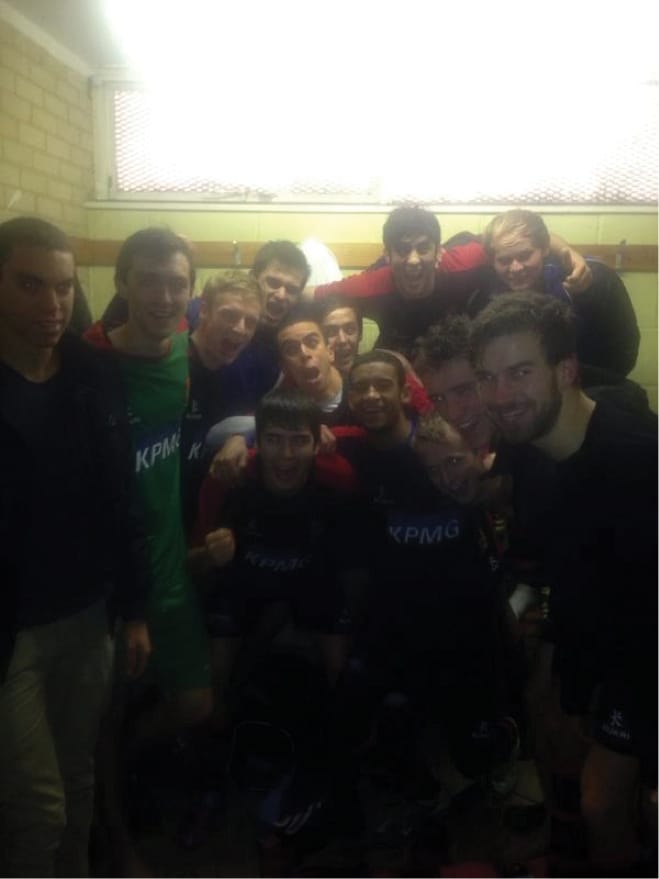
The scene is the town of Battle, East Sussex, 1066. The forces of King Harold line up against the invading Norman forces of William, Duke of Normandy. It was a tightly fought battle (or so says the tapestry of Bayeux), tipped by an arrow through the eye of King Harold which in turn rallied the Norman troops to their famous victory, shaping the socio-political landscape of England, Europe and ultimately, the world. Fast forward about 946 years later, and move about 44.1 miles down the A28.
On Wednesday 14th November IC 1s took a plane, two buses and finally navigated a 13 mile walk to reach Canterbury; the scene of the 2nd round of the BUCS cup. The 1s had already beaten their opposition, Canterbury 2s, at home (#FortressHarlington) 2-0 in the league and were in a boisterous mood having won all 6 matches this season by 2 goals or more. Having completed their pilgrimage to the religious capital of Britain, the 1s were determined to relive the heady heights of the previous season by making a David-esque cup run, although previous results would suggest they enter the competition as Goliaths.
The scene was set before kick off with the sun glistening off a layer of cobwebs that encapsulated every inch of the Canterbury pitches, bringing a tear to James ‘Adam Watkin Junior’ Murphy’s eyes. He then encouraged members of the team to kneel down and view the splendid sight from ‘David Attenborough’ view which was met with warm reception from approximately every member of the team. Meanwhile, Canterbury 2s were watching confused and, importantly, underestimating their opposition. After the brief National Geographic moment, it was time for football.
It was a game of two halves. And two more halves. And a penalty shoot-out.
The pitch was firm to hard and took a while for both teams to get out of the starting blocks, especially hindering Imperial’s patented blend of pass and move football. Conversely, Canterbury’s own brand prison-rules football was a natural fit for their legion of overpaid (maybe), undersexed (definitely) and generally remedial footballers. Chances were few and far between shown by the startling stat that Bjorkstrand did not miss a chance in the first half. A charming gentleman (number 5) in the opposition, sporting a tasteful tapestry of his own on his arm, was helpful in reminding us, at regular intervals, that Sunday lunches are both delicious, wholesome and versatile. However, the deadlock was broken when half time was approaching. Canterbury lined up for a free kick on the right touchline which was whipped in with startling good fortune, evading the heads of Hill and Woodhead and also goalkeeper Garner, who had no interest in claiming it or saving the resulting shot. It was scuffed back across goal by their penalty expert (see later, twice), and self-proclaimed former professional footballer, number 14, who was congratulated by his team mates for not being shit.
The second half produced a better performance from Imperial who, having concluded that their opposition were substandard, felt they had every chance to turn the match around. James Murphy, when he wasn’t being distracted by the local flora and fauna, was in exceptional form. For the next 45 minutes he caused incessant problems for their left back who had no answers for the questions posed to him, coincidentally a problem he had also suffered whilst sitting Maths GCSE. After captain Woodhead was forced from the field of play with a bum injury, Tim ‘Smithy’ Beasley was put in charge to lead the resurgent Imperial team. The introduction of Wedemeyer shortly after tipped the balance in Imperial's favour. Justice was done 10 minutes from time when Amjad fired a long ball, like the very arrow that punctured the retina of King Harold 946 years before (and 44.1 miles down the A28), and found Murphy on the right wing. The resultant cross found Robinson unmarked at the back post and his downward header located the back of the net. The final whistle blew 10 minutes later after another flurry of pressure from the Imperial front line.
The first half of extra time was largely non-eventful, with both teams seemingly content to settle for a nailbiting shootout. Imperial were winning the possession battle but neither team looked set to break the deadlock. That was, until the second half of extra time. With 10 minutes to go, a forceful but legal challenge from Hill, that got 100% of the ball and approximately 0% of the man, earned a penalty for Canterbury’s own Tom Daley. Number 14, fresh from his first half wonder goal, came to the conclusion that he was the best penalty taker in their team and strode up confidently. James Murphy, Imperial's Oracle and resident wildlife expert, confidently informed Number 14 he would not score. He didn’t. His scuffed shot down the middle was saved by a Garner right hand, despite his initial leftward movement. This resulted in the whole Canterbury team wondering why they had let him take it in the first place.
Penalties loomed large and no team mustered enough strength to get a winner, although if any team looked likely it was Imperial. Hill made his presence known on a number of occasions seemingly winning everything in the air and inflicting collateral damage on the ground (and resident spiders). For unknown reasons, Hill was unable to complete the match.
Having seen the incompetence of Canterbury’s penalties already, Imperial were confident of the shootout win. Wedemeyer, Robinson, Garner, Beasley and Ahmed Cherif (Jnr) put their names forward, with some more confident than others. Beasley won the toss and Imperial took first. Wedemeyer strode to the spot with German confidence but his effort, aimed at the top right corner was both too top and too right. Shortly afterwards the first Canterbury taker despatched his effort bottom left and Imperial were 1-0 down. Robinson, Imperial’s regular spot kicker, also went top right and left the keeper without a chance. Canterbury’s number 14 decided that, despite clearly being rubbish at penalties, he would make amends for his previous scuffed penalty. He failed in spectacular style as he repeated his previous attempt, scuffing down the middle allowing Garner to save with his right foot. His attempts at blaming the penalty spot for his miss fell on deaf ears. Garner picked himself up from goal and retrieved the ball, to the clear shock of every spectator. Despite this, with confidence oozing from every orifice, and after almost 10 million hours of penalty practice, he sent the keeper the wrong way to give Imperial a 2-1 lead. Canterbury promptly missed another penalty by skewing a drilled penalty past the left hand post. Beasley had the chance to give Imperial a two goal cushion but his penalty to the keepers left was saved. Canterbury then drew level at 2-2 with one penalty to go. Cherif Jnr took his penalty with his pokerface showing nothing. He sent the keeper the wrong way and found the right hand corner of the net leaving Imperial one penalty away from glory (the next round). The Canterbury player looked scared by the looming figure of Garner and the pressure told. His tame effort was saved by the left hand of Garner, sending the Imperial players into rapture and Murphy into the nearby forest to look for more interesting Kent wildlife.
Garner was voted man of the match but everyone grafted well and showed good character to recover from going behind for the first time this season. Imperial 1s remain unbeaten after 7 games and hope to have wrapped up the BUCS league title when they travel to Canterbury for the last game of the season.
Conclusions: Henry has shown (experimentally) that he both saves and scores penalties, both in vivo and ex vivo. Despite a strong body of literature suggestingotherwise (Euro ’96), Marius Wedermeyer does not.
